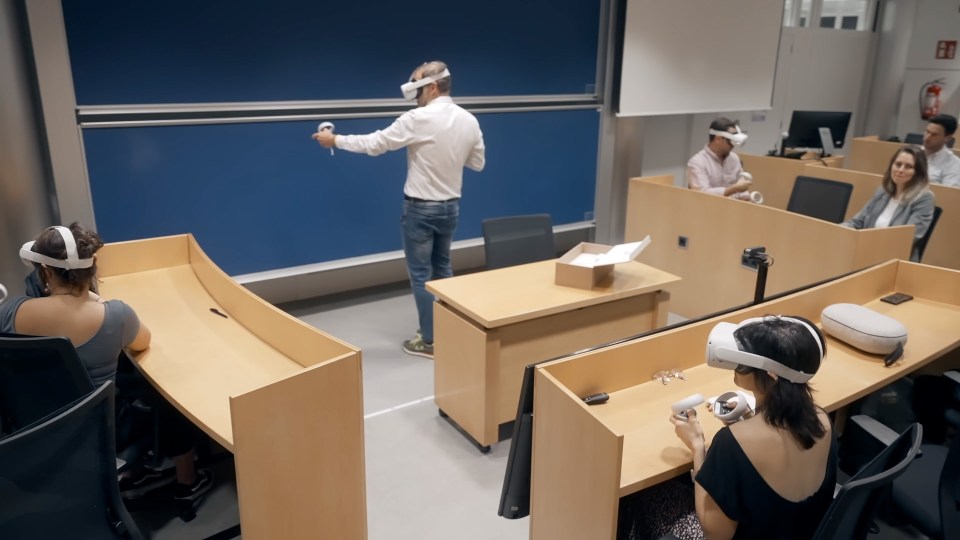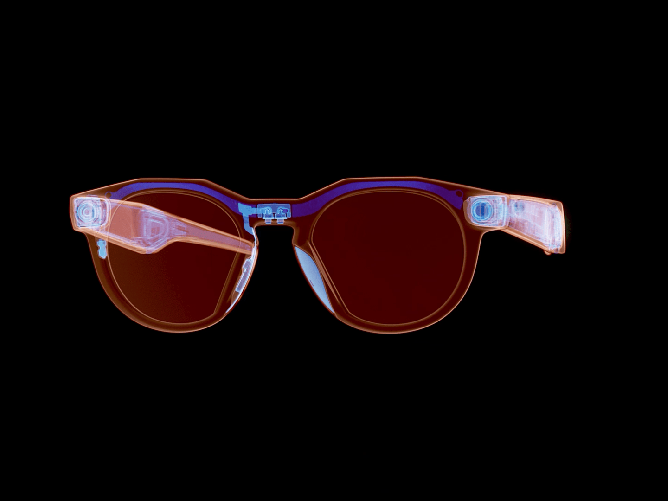
The metaverse could contribute an additional €259-€489 billion per year to the EU’s GDP by 2035, according to research commissioned this year by Meta and produced by Deloitte. Today, we’re sharing the stories of European businesses and institutions that are using these immersive technologies and the tangible impact they’re having, from immersive education and training to new possibilities in healthcare and the workplace.
Healthcare
Imagine if doctors could practice surgery in a realistic, risk-free way – with virtual reality (VR) that’s already possible and happening today.
At the forefront of this work are companies like Medicalholodeck which allows medical professionals, educators and students to visualise, edit, and discuss human dissections, and 3D human anatomy while training in a fully immersive digital environment.
“The students have the ability to much better prepare for the practical exercises. More than 90% of the students have reported to us that the presentation in 3D clearly outweighs those of a classic atlas.”
– Philipp Feodorovici, Resident in Thoracic Surgery at the University Hospital in Bonn (UKB) and CTO at Bonn Surgical Technology Center (BOSTER)
In France, AVATAR MEDICAL, a spin-off from the Institut Curie and Institut Pasteur, two leading research centers in the world, developed software that transforms medical images from scanners and MRIs into three-dimensional virtual reality representations. Virtual Medicine from Slovakia delivers an immersive experience of over 13,000 anatomical structures designed for students, medical and nursing schools, and universities, which is used in more than 180 countries globally.
Training for surgeons and medical education are just two of the many applications in this space. French company, HypnoVR, developed a software that helps patients manage stress and anxiety, which is used in over 400 hospitals across Europe and has already benefited over 100,000 patients. In Poland, Unicorn VR World offers an immersive gaming project for students with special education needs, while Czech company Kaleido develops virtual experiences for retirement homes and hospitals which are used for activation therapy and cognitive training.
Education
Metaverse technologies are transforming many areas of education, creating new ways to inspire and learn. A report by PwC found that 40% of VR learners are more confident in applying what they’ve been taught, and 150% more engaged during classes. The XR Association and the International Society for Technology in Education found that 77% of educators believe immersive technologies ignite curiosity and improve engagement in class. European companies are right at the forefront of this development
GoStudent, European EdTech unicorn, offers an immersive language learning platform, and thanks to virtual reality transports students to far off places that simulate real-life situations. Higher education institutions and universities are also gradually adopting immersive technologies. In Spain, renowned business school Esade partnered with virtual reality developers Extendra, and opened a virtual replica of their campus so that students can attend classes remotely.
For TARGO, an Emmy-nominated documentary studio from France, virtual reality is the ultimate media capable of bringing viewers inside stories. With their documentary about Notre-Dame, developed after the fire in 2019, they managed to virtually reopen the cathedral to visitors for cultural exploration. In Poland, VRHeroes, VR production studio, immerses students in historical experiences and in collaboration with Meta and the National Research Institute (NASK), they launched a series of workshops for teachers on how to use augmented reality (AR) and virtual reality (VR) in their classrooms.
The metaverse technologies can also bolster empathy, as exemplified by Kiin, which offers immersive diversity and inclusion training. Its users can experience how different interventions, for example microaggressions, can be perceived on the receiving end, teaching empathy and inclusivity in an immersive and tangible way that’s not possible during traditional courses.
Industry
European industry leaders, such as Lufthansa, are using immersive technologies in product development, as a way to engage customers and in employee training.
“Airplane seats are expensive if you have to make them available in a large quantity at different locations. In order to train employees on these seats or to present them to customers worldwide, it is very helpful to be able to do this also in a virtual space”
– Bjoern Becker, Head of Program Future Intercont Experience, Lufthansa
Alstom, a global leader in sustainable mobility solutions, utilizes immersive technologies like virtual and augmented reality to enhance training, design, and maintenance processes for its rail transportation solutions.
“We do not expose employees to real risks in these virtual worlds and the impact on memory is much more significant than under more traditional training conditions.”
– Frank Gaillard, Global Learning Director at Alstom
Similar benefits are experienced by the automotive company IVECO, which introduced an immersive safety training developed by Xperiencia Virtual.
“We have reduced training times by 75%, improved the efficiency of training through neuroscience by 93%, we have increased worker satisfaction by 84%, and above all, factory workers take the culture of safety home with them.”
– Marta González responsible for the Environment, Health & Safety at the IVECO Valladolid Plant
DECATHLON, a leading company in the sports market, sees immersive technologies as solutions to break down certain barriers and constraints to the practice and discovery of sports. The company developed a dedicated pad for Quest 2 controllers in collaboration with Eleven Table Tennis, a VR simulator of table tennis.
“Virtual reality opens doors for us that we did not even imagine opening. There can be a lot of obstacles practicing conventional table tennis. And thanks to virtual reality, all this becomes accessible from home.”
– Jonathan Vandamme, Table Tennis Design & Innovation Leader at DECATHLON
The post European Surgeons, Educators, and Industrial Workers See the Impact of Metaverse Technologies appeared first on Meta.















 English (US) ·
English (US) ·